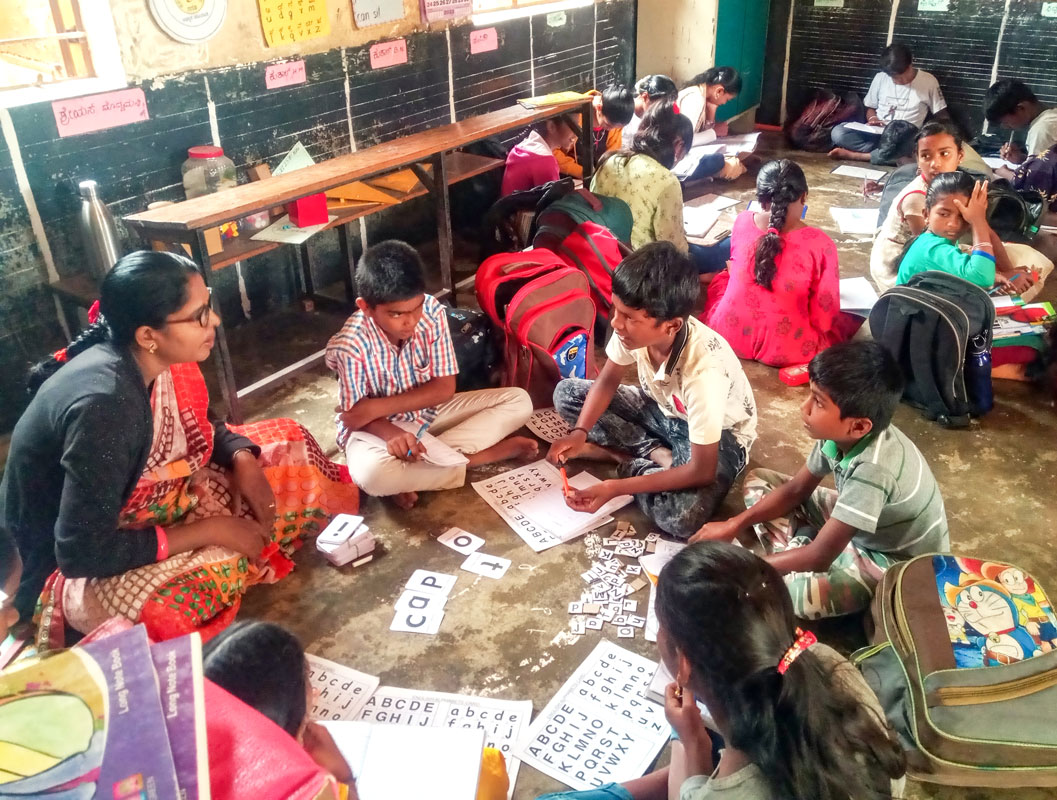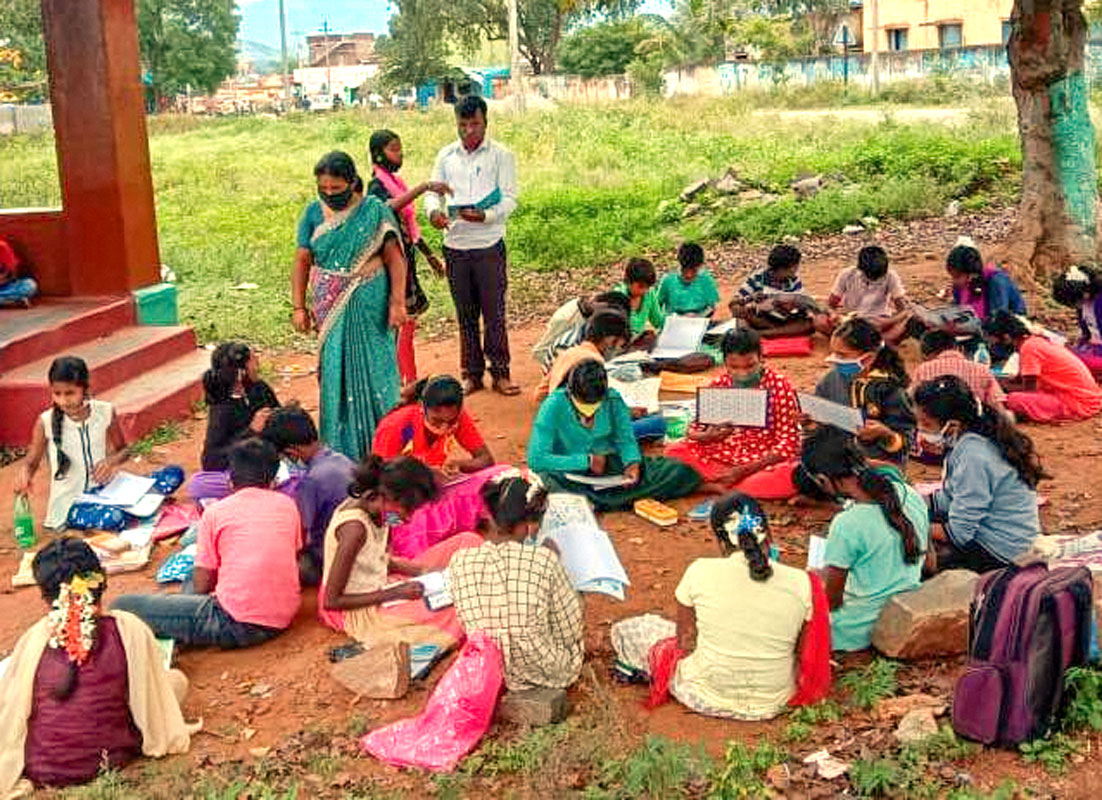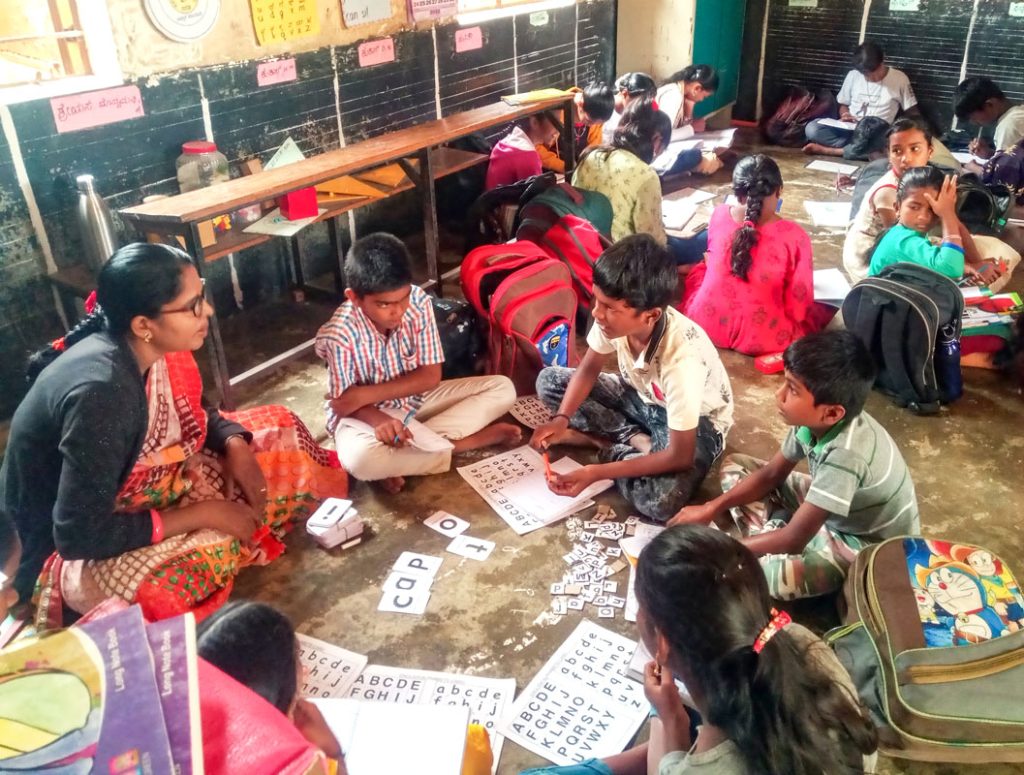Nearly 30,000 school students in rural Karnataka can confidently converse in English and comprehend simple sentences, all thanks to the Remedial English programme being conducted by RCs Bangalore Yelahanka and Bangalore West, RID 3192. The clubs undertook the first phase of the project during 2019–21 with global grant support from RC Austin, RID 5870. It was continued to the next phase in 2021, this time in partnership with RC Cupertino, RID 5170.

“In spite of the raging Covid pandemic in the first year (2019–20), we were able to impact 12,651 children, covering 208 schools, and 12,038 students in 200 schools in the second year. Taking classes in temple premises, under the tree, in the Panchayat building campus… we successfully engaged around 25,000 children in the most difficult times,” says PDG Rajendra Rai, a member of RC Bangalore West. The project was continued through another GG with RC Cupertino to reach out to 1,500 students from across 50 government schools. It was completed recently and the students exhibited their newly acquired English proficiency to Gabriela Klein, TRF coordinator from the RI headquarters in Evanston, at an ‘English Fair’ during her visit to Bengaluru in February.
“I was impressed by the teachers’ dedication to following the methodology and the children’s eagerness to excel in their English communications. Being able to see how Rotarians from different countries, teachers, parents, and partners worked together to make this programme a possibility was also a powerful experience,” she said. Children showcase all that they have learned at the ‘English Fair’ organised by the clubs after the completion of each course. They converse in English and skits are enacted.

On the implementation of the project, Rai said that the clubs have a tie-up with Pratham, an NGO that provided the educators, to identify and train one or two teachers from the participating schools in the new methodology of teaching English called ‘Teaching at the Right Level’. These teachers in turn will take classes for batches of 30 students for four hours a day for a month. “They cover basic English for students of Classes 5 and 6, and advanced English for students of Classes 6 and 7.”
The participants include children of labourers and small business owners such as manufacturers of wicks, incense sticks and baskets. “We want to reach out to more rural children. Being confident in English, they will aspire to become scientists, engineers and doctors. Gender disparity will also be addressed, since girls outnumber boys in rural schools, enabling them to have access to more opportunities and better quality of life,” says Rai.

The genesis of the programme began in 2007–08 when the two Rotary clubs, along with a Texas-based NGO Pragathi got together to promote over 10 literacy projects in government schools in Karnataka with matching and global grant support. The first GG project, Teach India, launched in 2014 focused on teaching Kannada and Math, and set up libraries in around 400 rural schools. It benefitted 30,000 children in its two-year duration. “With the success of this project, we executed two more similar GG projects; this time we touched another 33,000 children,” he says. The fourth GG focused on teaching Math and creating a community library for a one-year period, benefitting 15,000 children.
All these literacy projects have helped more than one lakh schoolchildren develop interest in academics, besides complementing the school curriculum. “The parents were enthusiastic during each of our projects and were happy to witness the transformation in their wards. When we did the Remedial English programme, we could see the joy in the parents as they heard their children speak fluently in English. They considered their children at par with their peers in private schools,” says Rai. He hopes that “the government replicates these initiatives and carries the project forward in the interest of the enthusiastic young learners.”






